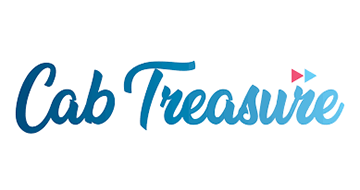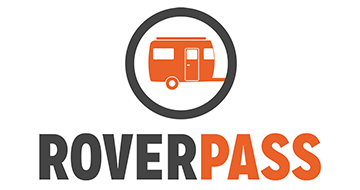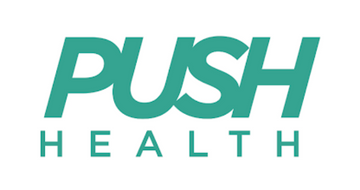
| Starting price | Free |
|---|---|
| Pricing model | Free (Open source) |
| Free Trial | Yes |
| Free Version | Yes |
Reservation online booking software is designed to help businesses manage and automate their reservations and bookings. It provides a platform through which customers can book online, as well as tools for businesses to manage their bookings, appointments and availability.
Find the best value reservation online booking software on SaasGenius.
Our top list represents the best value reservation online booking software on the market, based on our research. Discover the most popular and affordable options available to streamline your reservation and booking processes.

| Starting price | Free |
|---|---|
| Pricing model | Free (Open source) |
| Free Trial | Yes |
| Free Version | Yes |

| Starting price | $2/Reservation |
|---|---|
| Pricing model | Pay per Use |
| Free Trial | No |
| Free Version | No |

| Starting price | Free |
|---|---|
| Pricing model | Tiered pricing |
| Free trial | Yes |
| Free version | Yes |
Running a restaurant is not a simple task. Many problems may occur during the day, one of which is incorrect reservation bookings. With reservation software, you can take control of your bookings and forget about angry customers.
These reservation platforms also have various helpful features, including payment processing gateways and management tools. If you are a doctor that requires scheduling software, the above can come in handy, especially if your client needs to pay a consultation fee.
You can sync the software with your calendar to display the availability of your business to your patrons. With this feature, you can also show your customer if you are closed for the holidays or renovations. Plus, the software can cross-reference your primary calendar with your availability of events.
Having integrations with third-party tools is why people love using reservation online booking software. You can connect these services to various apps, including Zoom, MailChimp, and Slack.
Advanced reservation systems go beyond basic booking functionality. Modern platforms incorporate artificial intelligence for dynamic pricing, predictive analytics for demand forecasting, and automated waitlist management. The most effective solutions combine customer relationship management with operational efficiency, creating a seamless experience for both staff and patrons.
Restaurant owners particularly benefit from integrated POS system connections, real-time table management, and automated confirmation workflows. These features reduce human error while maximizing revenue potential through optimized seating arrangements and reduced no-show rates.
Reservation software allows you to manage all your customers in a single place. This total solution is one of the best ways to satisfy your staff and client. The best thing about reservation online booking tools is that they are easy to learn because they include a user-friendly dashboard. These applications have a slight learning curve and are perfect for beginners.
In most cases, it takes employees no longer than an afternoon to understand the software packages mentioned in this list. Once your staff is competently trained, it is time to get them up to speed with the other features of the backend.
These applications allow you to message customers via SMS or email to confirm or remind them of their booking. What is remarkable is that you don’t need to be tech-savvy to communicate with your client professionally.
It is a good idea to take your time and design a booking page that looks the part, especially if you want to attract more customers to your establishment. Another thing you can do to attract clients is give them the ability to add on services when they book or offer them coupons for a specific product.
The possibilities are endless with reservation booking software, so let your creativity run free.
Different industries require specialized approaches to reservation management. Healthcare providers need HIPAA-compliant systems with patient record integration, while fitness studios require class capacity management and membership tracking. Legal practices benefit from client intake forms and consultation fee processing, whereas service-based businesses need flexible appointment durations and staff assignment capabilities.
The most versatile platforms adapt to various business models without compromising industry-specific requirements. This flexibility ensures long-term scalability as businesses evolve and expand their service offerings.
Our rating methodology is designed to provide our users with the most comprehensive and accurate information about online reservation software. Our goal is to help our users find the best value software that meets their specific needs and requirements. Check out how we calculate the Genius Score for each provider.
| Software | Starting Price | Key Features | Best For | Free Trial |
|---|---|---|---|---|
| OpenTable | Free – $249/month | Restaurant focus, POS integration | Restaurants & hospitality | 30 days |
| Resy | $189 – $399/month | Waitlist management, guest profiles | Fine dining establishments | 14 days |
| SimplyBook.me | Free – $49.90/month | Multi-industry support, custom branding | Service businesses | Forever free plan |
| Acuity Scheduling | $14 – $45/month | Intake forms, payment processing | Consultants & coaches | 7 days |
| Booksy | Free – $29.99/month | Beauty industry focus, customer app | Salons & spas | Forever free plan |
Reservation online booking software is ideal for any business that wants to automate and streamline its reservation and booking processes. It’s especially useful for companies in the hospitality, travel, and event planning industries, since it provides a platform where customers can make reservations online and companies can manage their appointments and availability in real time.
Service-based businesses with appointment-driven revenue models see the greatest return on investment. This includes medical practices, consulting firms, fitness studios, beauty salons, and professional services where time-slot management directly impacts profitability.
There are various reasons people love using reservation software to manage their customer base. With the multiple features that these applications offer, you will be able to make the most out of your scheduling.
Below are some of the factors you should consider before investing in reservation software for your business:
Having the option to book online gives your customer the freedom to arrange things on their own time. That can lead to higher customer retention because you are not forcing the customer to book an appointment.
Say, for example, you own a small gym offering one-on-one sessions. It should have a different booking experience compared to a foot spa. These platforms allow you to customize and change the user experience to better suit your clientele.
Modern reservation systems offer white-label customization, allowing businesses to maintain brand consistency throughout the booking process. Custom fields, branded confirmation emails, and personalized booking flows create a professional experience that reinforces brand identity.
Your patrons can take advantage of the various payment gateways that services like these offer. In most cases, users can pay through Visa, MasterCard, PayPal, Square, and Stripe, making it easy for anyone to book an appointment with your business.
Contemporary payment processing goes beyond basic card acceptance. Features like split payments, deposit collection, dynamic pricing based on demand, and automatic refund processing streamline financial operations while reducing administrative overhead.
One of the most extraordinary things about reservation applications is that most of them are supported on mobile devices. Transferable reservation online booking software is available whether you have an Android, iPhone, or Google smartphone.
With the correct software at your fingertips, you can manage your booking no matter where you are.
Mobile optimization extends beyond responsive design to include native mobile apps, push notifications, and offline functionality. Progressive web app technology ensures fast loading times and app-like experiences without requiring separate downloads.
| Feature Category | Basic Features | Advanced Features | Enterprise Features |
|---|---|---|---|
| Booking Management | Online calendar, time slots | Resource allocation, group bookings | Multi-location management, franchisee access |
| Customer Communication | Email confirmations, SMS reminders | Automated follow-ups, review requests | Personalized marketing campaigns, loyalty integration |
| Payment Processing | Basic card processing | Deposits, no-show fees | Dynamic pricing, revenue optimization |
| Analytics & Reporting | Basic booking reports | Customer insights, revenue tracking | Predictive analytics, custom dashboards |
| Integrations | Calendar sync, basic CMS | CRM, marketing tools | ERP systems, custom API development |
Besides making your business efficient, there are many other reasons people love using online booking software for their company.
Connecting your reservation software to a host of the central platforms is as easy as one, two, and three. These applications merge with major CMS (content management systems) and can embed content into social media channels.
Enterprise-level integrations extend to ERP systems, accounting software, and customer relationship management platforms. This creates a unified business ecosystem where data flows seamlessly between departments, eliminating manual data entry and reducing errors.
Communicating with a client is essential if you want your business to become authoritative and trustworthy. You can inform your customer of crucial changes in your roster or tell them about your latest specials with a reservation software package. If you want to send your patron a message about your new 15-minute-long foot massage, you can do that too!
Modern communication features include automated review requests, personalized birthday messages, and targeted promotional campaigns based on booking history. These touchpoints strengthen customer relationships and drive repeat business.
These software packages all come with an intuitive design and user-friendly interfaces, making it possible for people of all skills to use them. If you are not a tech-savvy individual, you will be happy to know that these platforms cater to everyone.
Contemporary reservation platforms prioritize accessibility with features like voice booking, multi-language support, and ADA compliance. These considerations ensure the broad customer reach while maintaining usability standards.
People change their minds at a moment’s notice, especially if they are unsure of a business. A prominent reservation booking tool can help you find out why the customer left your site through the assistance of analytics.
These applications make adjusting certain content on your booking page easier to fulfill your customer search intent.
Advanced analytics provide insights into peak booking times, customer lifetime value, and service popularity. Machine learning algorithms can predict no-show probabilities and suggest optimal pricing strategies based on historical data.
Building better customer relationships is one of the primary ways to grow your company. A reservation tool allows you to fulfill your client’s needs without dealing with them in person.
The ease of use and secure payment methods provided by these platforms allow users to feel safe. This system not only saves time but a ton of money, too! By keeping track of your reservations, you can synchronize information so that everyone on your team knows what is going on.
Customer relationship management extends to loyalty program integration, referral tracking, and automated win-back campaigns for inactive customers. These features create lasting relationships that drive sustainable business growth.
The price of reservation software varies significantly depending on which platform you decide to sign up for. Below is a basic guideline for the pricing, but please remember that your business typically determines the cost.
The above pricing is just a general outline of the expenses of incorporating an online reservation booking software into your website.
Beyond monthly subscription fees, businesses should budget for setup costs, training expenses, and payment processing fees. Some platforms charge per-booking fees, while others require additional costs for premium integrations or advanced features.
Transaction fees typically range from 1.5% to 3.5% per booking, depending on the payment processor and software package. Consider these ongoing costs when calculating the total cost of ownership.
What type of business you own will determine what software you need. Luckily, the software on this list can help in various sectors and industries, so you can rest easy knowing something is here for you.
Restaurant reservation systems focus on table management, party size optimization, and POS integration. Features like waitlist management, guest preferences tracking, and special dietary requirement notes are standard in hospitality-focused platforms.
Popular solutions like OpenTable and Resy dominate this space, offering diner discovery platforms alongside reservation management. These systems often include marketing tools specifically designed for the restaurant industry.
Medical appointment software requires HIPAA compliance, patient portal integration, and insurance verification capabilities. These systems often include telemedicine features, patient intake forms, and automated appointment reminders to reduce no-shows.
Specialized medical platforms integrate with electronic health records (EHR) systems and practice management software, creating streamlined workflows for healthcare providers.
Beauty industry software like Booksy focuses on service duration management, stylist availability, and package bookings. These platforms often include inventory management for retail products and automated marketing campaigns for special promotions.
Wellness-focused features include membership management, class scheduling, and instructor assignment capabilities for comprehensive business management.
Professional service providers benefit from intake forms, consultation fee processing, and document sharing capabilities. These platforms often integrate with billing software and project management tools for comprehensive client management.
Advanced scheduling solutions for consultants include time zone management, meeting preparation workflows, and automated follow-up sequences.
Successful implementation requires careful planning of existing data migration and integration workflows. Businesses should audit current systems, identify data dependencies, and create migration timelines that minimize operational disruption.
Consider running parallel systems during transition periods to ensure business continuity. This approach allows staff training and system testing without risking customer experience quality.
Employee adoption determines software success more than feature availability. Develop comprehensive training programs that address different learning styles and technical skill levels within your team.
Create standard operating procedures that incorporate the new software into existing workflows. This documentation serves as ongoing reference material and ensures consistent customer experiences across all staff members.
Transitioning existing customers to online booking requires strategic communication and incentive programs. Consider offering booking discounts or loyalty points for customers who adopt the new system.
Gradual migration approaches work better than immediate switches. Maintain traditional booking methods while encouraging online adoption through positive reinforcement rather than forced transitions.
Modern reservation software must comply with GDPR, CCPA, and other regional privacy regulations. Businesses should verify that chosen platforms implement appropriate data encryption, user consent management, and data retention policies.
Regular security audits and penetration testing ensure ongoing protection against evolving cyber threats. Look for platforms that provide transparency reports and security certifications.
Payment processing security requires PCI DSS compliance at minimum. Advanced platforms implement tokenization, fraud detection, and secure payment processing that protects both businesses and customers.
Consider platforms that offer fraud protection services and chargeback management tools to minimize financial risks associated with online payments.
Healthcare providers must ensure HIPAA compliance, while financial services require additional regulatory compliance measures. Choose platforms that understand and support your industry’s specific regulatory requirements.
Document compliance features and maintain audit trails that support regulatory reporting requirements. This preparation simplifies compliance audits and reduces regulatory risk.
Select platforms that support business growth through flexible pricing models and feature scalability. Consider future needs like multi-location management, franchise support, and enterprise-level integrations.
Evaluate platforms based on their development roadmaps and commitment to innovation. Active development communities and regular feature updates indicate long-term viability.
Consider platforms that demonstrate early adoption of emerging technologies like augmented reality for venue visualization, blockchain for secure transactions, and IoT integration for smart venue management.
Flexibility in API development and third-party integrations ensures compatibility with future technologies and business tools that haven’t been developed yet.
Customer expectations continue evolving toward more personalized, convenient, and integrated experiences. Choose platforms that demonstrate adaptability and customer-centric development approaches.
Regular user experience updates and mobile-first development indicate platforms that prioritize evolving customer preferences and technological advancement.
Reservation online booking software has evolved from simple scheduling tools to comprehensive business management platforms. The right solution streamlines operations, enhances customer experiences, and drives revenue growth through optimized booking processes and customer relationship management.
Success depends on selecting software that aligns with your industry requirements, business size, and growth objectives. Consider implementation timeline, staff training requirements, and total cost of ownership when making your final decision.
For businesses ready to modernize their booking processes, start with a thorough assessment of current workflows and customer pain points. This foundation ensures that your chosen platform addresses real business needs rather than just technological capabilities.
The investment in professional reservation software pays dividends through increased efficiency, reduced no-shows, and improved customer satisfaction. Take advantage of free trials and demos to experience platforms firsthand before committing to long-term contracts.